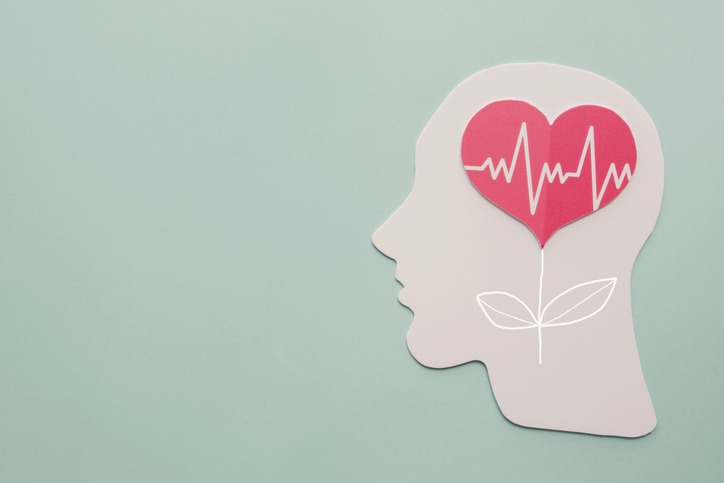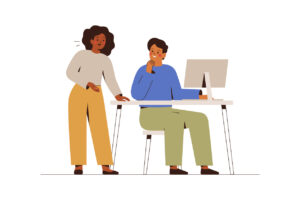How comms pros can help reduce mental illness stigma
It matters what words we use—and what actions we take to back up all the talking.

Even as more public figures like American gymnast Simone Biles share their own struggles with anxiety and depression, our society is still woefully underprepared for the mental health conversations that will be needed as the COVID-19 pandemic heads into its third calendar year.
Reducing the stigma around mental illness has never been more important than it is now. It’s estimated that nearly 1 in 5 adults in the United States currently live with a mental illness. If you work in a company of 100 people, that means 20 of your coworkers are struggling. That person struggling might be you. In my agency, one of those people is me.
Like many people with a diagnosed mental illness, I felt I had to hide the symptoms of my bipolar disorder in order to further my career, often putting my mental well-being at further risk. Which is why, now that I’m in a leadership position, I advocate for normalizing the conversation around mental illness.
1. Let’s start by removing a few words from our lexicon.
Thankfully, we’ve stopped using the hurtful word “retarded” as a put-down or synonym for mentally disabled people. It is time to eliminate the words “psycho,” “crazy,” and “insane” in casual conversation as well. No one with mental illness is a “psycho” and, while you may hear someone living with a mental disorder refer to themselves as crazy, it is not appropriate to assign that label to another person.
PR pros are especially equipped to help change the status quo around language. We can remove stigmatized words from social posts and press releases, advise spokespeople on how to talk about these issues, and help the media adjust as well. We reach out to journalists to draw attention to typos in news stories. Why not send a short note directing their attention to the language that perpetuates the stigmatization of mental health?
2. We need to create safe spaces for people to share their mental status.
Few people realize that there are more than 300 defined mental illnesses, including anxiety disorders, depression, ADHD, personality disorders and more. Mental illness can be as disruptive to quality of life as a physical illness. However, just like with a broken bone or migraine headache, most people can still perform meaningful roles at work, school and in their social lives.
Whether it is situational or a diagnosed illness—or just a string of bad days—we need to normalize talking about our feelings and showing empathy when people are struggling. People need to be reassured that their mental status or clinical diagnosis won’t derail their careers or negatively impact others’ perception of them. That takes a concerted effort to create safe spaces, both inside and outside of the HR office, for courageous and sometimes awkward conversations.
You might have an opportunity to help someone speak publicly about their mental health. Personal empathy and care are key in bringing these stories to life, but so is an organization’s commitment to normalizing neurodiversity.
3. Changing the conversation isn’t enough, actions matter.
Employee Assistance Programs and wellness stipends can be expensive for small agencies, but there are other ways to address mental health needs, also. Therapists recommend practicing active listening and being open to letting emotions come up without trying to problem-solve. At Well Done, that recently took the form of a staff meeting dedicated to sharing how the pandemic had affected each person on the team, both what was hard and what was pleasantly surprising.
Updating the language your company uses around mental health policies in employee handbooks is important. It is also worth reviewing how you respond to personal situations in the workplace. If you were to undergo surgery or welcome a new child into your life, people would show an outpouring of support. Does your company offer the same level of care for someone who is dealing with depression?
The stress and anxiety caused by COVID-19 has made it more culturally acceptable for people to talk publicly about how they are feeling or to take a day off to decompress. The next step is to encourage people to prioritize their mental health every day—and accept those who experience and interact with the world differently.
Lisa Sirkin Vielee is president of Well Done Marketing.






